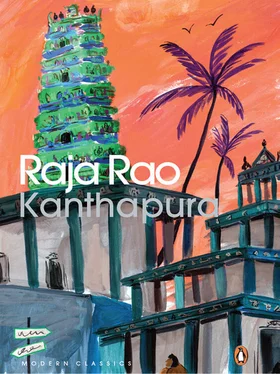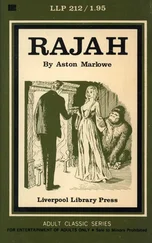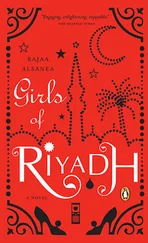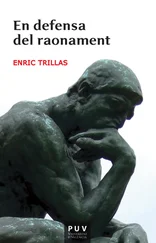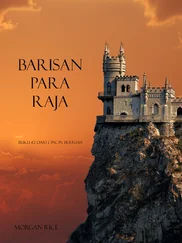Kenchamma, Kenchamma,
Goddess benign and bounteous,
Mother of earth, blood of life,
Harvest-queen, rain-crowned,
Kenchamma, Kenchamma,
Goddess benign and bounteous.
And when the night is over, and the sun rises over the Bebbur mound, people will come from Santur and Kuppur, people will come from the Santur Coffee Estate and the Kuppur Cardamom Estate, from coconut gardens and sugar cane fields, and they will bring flowers and fruit and rice and dal and sugar candy and perfumed sweetmeats, and we shall offer you all, dancing and singing — the bells will ring, the trumpets tear through the groves, and as the camphor rises before you, we shall close our eyes and hymn your praise. Kenchamma, Great Goddess, protect us! O Benign One!’
Our village had four-and-twenty houses. Not all were big like Postmaster Suryanarayana’s double-storied house by the temple corner. But some were really not bad to look at. Our Patwari Nanjundia had a veranda with two rooms built on to the old house. He had even put glass panes to the windows, which even Postmaster Suryanarayana could not boast of. Then there were the Kannayya-house people, who had a high veranda, and though the house was I know not how many generations old, it was still fresh and new as though it had been built only yesterday. No wonder that Waterfall Venkamma roared day and night against Rangamma.
‘Why should a widow, and a childless widow too, have a big house like that? And it is not her father that built it,’ said she. ‘It’s my husband’s ancestors that built it. I’ve two sons and five daughters, and that shaven widow hadn’t even the luck of having a bandicoot to call her own. And you have only to look at her gold belt and her Dharmawar sari. Whore!’ And so, night and day did she howl, whenever she met Temple Lakshamma or Bhatta’s wife Chinnamma coming back from the river. To tell you the truth, Venkamma’s own house was as big and well built as her sister-in-law’s. But she said it was not large enough for her family. Besides, she could not bear the idea that it was occupied by Rangamma’s father and mother, and when the vacations came Rangamma had all her younger brothers, and the children of the elder one from Bombay—’all those city-bred fashionable idiots’—to spend the summer. ‘Tell me,’ said Venkamma one day to Akkamma, bringing forward her falling sari over her shaven head, ‘why should our family feed theirs? If her parents are poor, let them set fire to their dhoti and sari and die. Oh, if only I could have had the courage to put lizard poison into their food! Well that will come too.’ She would clap her hands and go into her house leaving Front-house Akkamma to hurry up her steps.
Akkamma had people come to visit them. You know, Coffee-planter Ramayya is a cousin of her sister-in-law, and when he is on his way to Karwar he sometimes drops in to see them — and even spends a night there. He left his Ford on the other side of the river, for the ferry did not ply at night, and he came along. Today he is there and people are all busy trying to see him. For midday meal he will have a vermicelli paysam and Patwari Nanjundia and his son-in-law are both invited there. There are others coming too. The Temple people and the Figtree-house people, and Doré, the ‘university graduate’ as they call him. He had lost his father when still young and his mother died soon after, and as his two sisters were already married and had gone to their mothers-in-law, he was left all alone with fifteen acres of wet land and twenty acres of dry land. And he said he would go to the city for ‘higher studies’ and went to a university. Of course, he never got through the Inter even — but he had city ways, read city books, and even called himself a Gandhi-man. Some two years ago, when he had come back from Poona, he had given up his boots and hat and suit and had taken to dhoti and khadi, and it was said he had even given up his city habit of smoking. Well, so much the better. But, to tell you the truth, we never liked him. He had always been such a braggart. He was not like Corner-house Moorthy, who had gone through life like a noble cow, quiet, generous, serene, deferent and brahmanic, a very prince, I tell you. We loved him, of course, as you will see, and if only I had not been a daughterless widow, I should have offered him a granddaughter, if I had one. And I know he would have said: ‘Achakka, you are of the Veda Sastra Pravina Krishna Sastri’s family, and is it greater for you to ask something of me, or for me to answer “Yea”?’ He’s the age my Seenu is, and he and Seenu were as, one would say, our Rama and brother Lakshamana. They only needed a Sita to make it complete. In fact, on that day, as everybody knew, Coffee-planter Ramayya had come to offer his own daughter to Moorthy. But the horoscopes did not agree. And we were all so satisfied.
Till now I’ve spoken only of the Brahmin quarter. Our village had a Pariah quarter too, a Potters’ quarter, a Weavers’ quarter, and a Sudra quarter. How many huts had we there? I do not know. There may have been ninety or a hundred — though a hundred may be the right number. Of course you wouldn’t expect me to go to the Pariah quarter, but I have seen from the street corner Beadle Timmayya’s hut. It was in the middle, so — let me see — if there were four on this side and about six, seven, eight that side, that makes some fifteen or twenty huts in all. Pockmarked Sidda had a real thothi house, with a big veranda and a large roof, and there must have been a big granary somewhere inside, for he owned as much land as Patwari Nanjundia or Shopkeeper Subba Chetty, though he hadn’t half Kanthapura as Bhatta had. But lately, Sidda’s wife went mad, you know, and he took her to Poona and he spent much money on her. Bhatta of course profited by the occasion and added a few acres more to his own domain. Clever fellow this Bhatta! One day he was sure to become the zamindar of the whole village — though we all knew him walking about the streets with only a loincloth about him.
The Potters’ street was the smallest of our streets. It had only five houses. Lingayya and Ramayya and Subbayya and Chandrayya owned the four big houses, and old Kamalamma had a little broken house at the end of the street where she spent her last days with her only son. Formerly, they say, the Potters’ street was very flourishing, but now, with all these modern Mangalore tiles, they’ve had to turn to land. But Chandrayya still made festival pots, and for Gauri’s festival we’ve always had our pots done by him. He makes our images too and he even sold them at the Manjarpur fair. The rest of the potters were rather a simple, quiet lot, who tilled their lands and now and again went out to the neighbouring villages to help people to make bricks.
Now, when you turned round the Potters’ street and walked across the temple square, the first house you saw was the nine-beamed house of Patel Rangè Gowda. He was a fat, sturdy fellow, a veritable tiger amongst us, and what with his tongue and his hand and his brain, he had amassed solid gold in his coffers and solid bangles on his arms. His daughters, all three of them, lived with him and his sons-in-law worked with him like slaves, though they owned as much land as he did. But then, you know, the Tiger, his words were law in our village. ‘If the Patel says it,’ we used to say, ‘even a coconut-leaf roof will become a gold roof.’ He is an honest man, and he has helped many a poor peasant. And heavens! What a terror he was to the authorities!
The other Sudras were not badly fed householders and they had as usual two or three sons and a few daughters, and one could not say whether they were rich or poor. They were always badly dressed and always paid taxes and debts after several notices. But as long as Rangè Gowda was there, there was no fear. He would see them through the difficulties. And they were of his community.
Читать дальше
